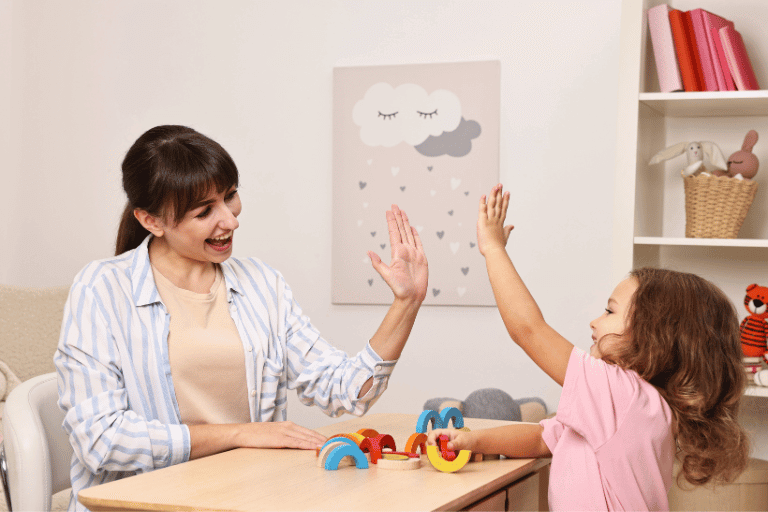Children’s mental health is as important as their physical health. However, in our fast-paced society, it’s easy for parents to overlook their children’s emotional and psychological issues. Early mental well-being fosters resilience, confidence, and healthy coping strategies, providing them with a source of happiness and balance.
This guide offers practical and actionable strategies that parents or guardians can implement to support their child’s mental health.
Understanding Children’s Mental Health
Before focusing on strategies, it’s important to understand what children’s mental health means. Children’s mental health refers to their emotional, psychological, and social well-being, which influences how they think, feel, and act daily. Mentally healthy children are more resilient to stressors, able to build relationships, and adapt to change.
Signs Your Child May Need Support
Parents should be aware of warning signs that may indicate mental health issues:
- Sudden changes in mood or behavior
- Withdrawal from friends or family
- Decline in school performance
- Sleep disturbances or changes in appetite
- Frequent complaints of physical ailments, such as headaches or stomach aches
Being aware of these signs early allows for timely support and intervention.
Practical Tips to Promote Children’s Mental Health
Here are some concrete ways to promote children’s mental well-being:
1. Encourage Open Communication
Create an environment where your child feels safe and secure enough to express their thoughts and emotions. Ask open-ended questions like:
- “How was your day at school?”
- “What made you happy today?”
- “Is there something bothering you?”
Listen to them without judgment, validate their feelings, and show empathy. This builds trust and helps children feel valued.
2. Establish Consistent Routines
Children thrive on predictability. Maintaining regular routines for sleep, meals, study, and play helps reduce anxiety and promote a sense of security. For example:
- Set regular bedtimes and wake-up times.
- Schedule structured homework and playtime.
- Incorporate family meals without distractions.
Consistency gives children a sense of stability, which is essential for emotional well-being.
3. Promote Physical Activity
Physical exercise is not only beneficial for the body, but it also contributes greatly to mental health. Physical activity can:
- Reduces stress and anxiety levels
- Boosts mood through endorphin release
- Develops socialization through group sporting events or outdoor games
Activities like family walks, swimming, soccer, etc., can make exercise enjoyable, in addition to a daily routine.
4. Teach Emotional Regulation
Children need to learn how to manage strong emotions such as anger, frustration, or sadness. Parents can support this learning by:
- Model calm behavior in stressful situations.
- Practice mindfulness or deep breathing exercises together.
- Encourage journaling and drawing to express their feelings.
Each of these techniques helps children cope with challenges in emotionally healthy ways.
5. Foster Positive Relationships
Close connections with family, friends, and teachers help develop emotional resilience. Support your child in:
- Spend quality time with your siblings and friends.
- Participate in group activities or hobbies.
- Develop empathy through cooperative tasks.
Positive social interaction helps improve self-esteem and decrease feelings of isolation or loneliness.
6. Limit Screen Time and Encourage Real-world Interaction
While technology can be beneficial, excessive screen time can have detrimental effects on your mental health. Try setting limits:
- Limit recreational screen time to 1-2 hours per day
- Encourage creative offline activities like reading, crafts, or outdoor games
- Monitor online interactions to ensure safety and a positive experience
Balancing time spent in both the digital and the real world will promote emotional and social development.
7. Encourage Creative Expression
Art, music, and storytelling are powerful ways for children to express themselves. Creative activities:
- Help process emotions
- Boost confidence and self-awareness.
- Provide a safe space for imagination and problem-solving
Sign your child up for classes or simply set aside time for free creative play at home.
8. Seek Professional Help When Needed
Despite our best efforts, children may sometimes need extra help. It is important to consult a child psychologist, therapist, or pediatrician if:
- Symptoms persist or worsen.
- There are signs of depression, anxiety, or behavioral problems.
- Your child is experiencing trauma or major life changes.
Professional support ensures your child receives the right tools and interventions.
Creating a Supportive Home Environment
A positive home environment is essential to children’s mental health. Consider simple practices, including:
- Showing love and affection daily
- Celebrating achievements, big or small
- Encouraging independence and responsibility
- Avoiding harsh criticism or comparisons
These practices create a stimulating space where children can thrive emotionally and socially.
Final Thoughts
It’s important to understand that promoting children’s mental health isn’t a never-ending task. With these strategies—open communication, established routines, physical activity, emotional skills, positive relationships, reduced screen time, creative expression, and professional support—you’re giving your children the tools to grow into resilient, confident, and happy kids.
Remember that as a parent/caregiver, you play a fundamental role in this process. The earlier you start investing in your child’s mental health, the stronger the foundation you will lay for a healthy and balanced life.
Take action today! For more expert advice on children’s mental health and practical parenting tips tailored to UAE families, consult Dr. Olfa Koobar, a trusted pediatrician in Dubai, and take care of your child’s well-being today.




